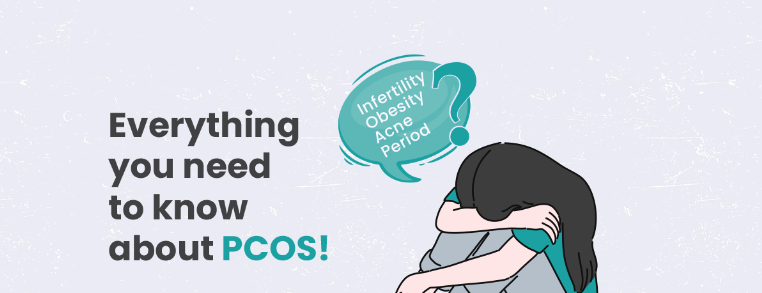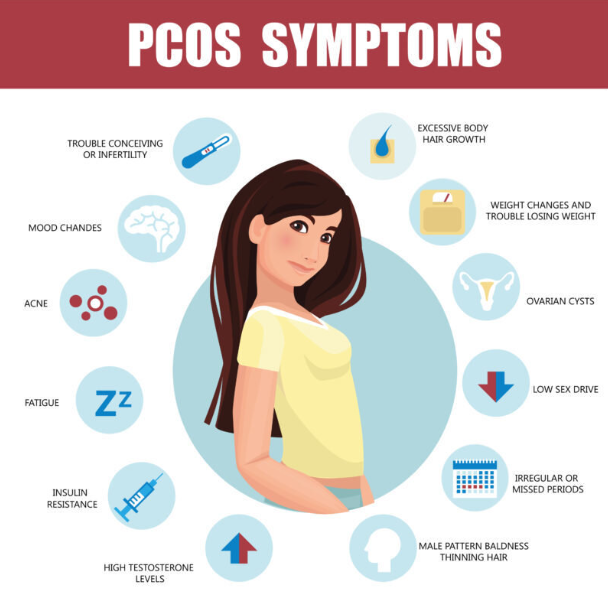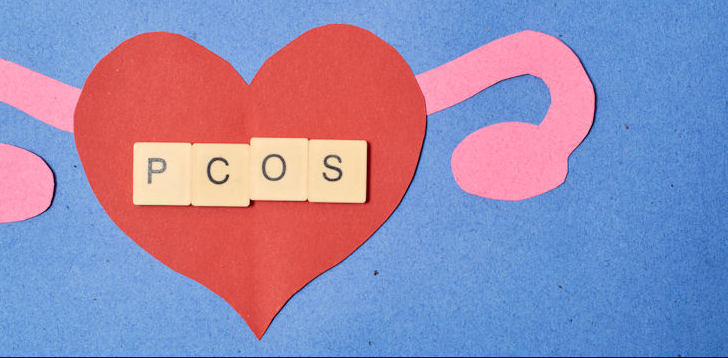A hormonal condition known as polycystic ovary syndrome (PCOSCO) affects women of reproductive age, usually between the ages of 15 and 44. Around the world, 1 in 10 women is thought to have PCOS. The illness manifests in various ways, such as irregular periods, excessive hair growth, weight gain, acne, and infertility.

PCOS develops when the ovaries generate more androgens or male hormones like testosterone. This results in the growth of tiny follicles or cysts on the ovaries, which can interfere with ovulation and result in hormonal abnormalities. PCOS can increase the risk of various health issues, such as type 2 diabetes, high blood pressure, sleep apnea, and physical symptoms.
Causes of PCOSCO
Although the precise origin of PCOS is unknown, evidence indicates that genetics and lifestyle elements, including diet and exercise, may contribute to the condition. Women who are overweight or obese or have a family history of PCOS are more prone to acquire the disorder. Blood testing and imaging tests like ultrasounds can be used to diagnose PCOS. PCOS treatments seek to manage symptoms and lower the chance of comorbid health issues.
Moreover, menstrual cycles can be regulated, and excess hair growth and acne can be reduced with medications such as birth control pills, metformin, and anti-androgens. To stimulate ovulation in infertile women, drugs like clomiphene citrate or letrozole may be used. In addition to drugs, lifestyle modifications like losing weight, eating a balanced diet, and exercising frequently can help with PCOS management. Managing menstrual cycles, enhancing insulin sensitivity, and lowering the risk of various PCOS-related health issues can all be helped by losing 5–10% of body weight.
What Are the Conditions?
PCOS, a complicated and complex disorder, can significantly impact women’s health and well-being. Nonetheless, many people with PCOS can live healthy, productive lives with the correct diagnosis and treatment. If a woman thinks she could have PCOS or is exhibiting symptoms of the illness, she should consult a doctor. This disease co-occurs with PCOS and is linked to comorbidities (PCOSCO), impacting psychological and physical well-being.
By focusing on all the comorbidities connected to fertility, we will cover all the aspects of PCOS in this post. We will also talk about how acne and weight affect fertility. But it also impacts other medical disorders, including diabetes and heart health.
What is Polycystic Ovary Syndrome (PCOSCO)?
Only a little more than 500,000 women of reproductive age in the US have PCOS. Endocrine problems are also among the most prevalent diseases. The endocrine system, a network of glands that produce and release hormones, controls several essential internal activities, including the body’s capacity to convert calories into energy that powers cells and organs. Obesity, insulin resistance, and type 2 diabetes contribute to this condition. Several concomitant illnesses will influence the severity and progression of PCOSCO.
Diagnosing this illness can occasionally be challenging because of its propensity to resemble other medical problems. To ascertain whether you have it, your doctor will perform a physical examination and may suggest tests to look for hormonal irregularities.
Signs and Symptoms Of PCOSCO
Let’s go over the signs and symptoms of this condition in more detail because they are similar to those of other disorders. Infertility, weight gain, irregular periods, acne, and acne are typical PCOS symptoms. Although no standard treatment technique exists, several medications are available to aid with the symptoms. Also, you should see a doctor.

The Different Types of PCOS
These are the different kinds of problems you may suffer.
- Lack of ovulation (Anovulatory cycles)
- High levels of male hormones ( Hyperandrogenism)
- Insulin resistance
- Heart disease
- Obesity or overweight Type II diabetes mellitus
- Cognitive impairment
- Psychiatric disorders such as anxiety and depression
Comorbidities in PCOS
The condition increases the likelihood of contracting other illnesses like diabetes, obesity, and heart disease. Although research on the PCOSCO profile is still lacking, several health disorders frequently co-occur with PCOS. These circumstances include:
Obesity
One of the most prevalent co-morbidities is obesity. Obesity raises the risk of type 2 diabetes and other chronic illnesses, including cancer, heart disease, and stroke. Thus this is probably true.
Type 2 diabetes
Another typical comorbidity is diabetes. Gestational diabetes and high blood pressure are two pregnancy-related issues more likely to develop in people with diabetes. Additionally, it may lead to insulin resistance, a significant factor in PCOS.
High blood pressure
Hypertension is another common comorbidity with PCOS. This is because hypertension increases the risk of cardiovascular disease, the leading cause of death in women. Moreover, hypertension can lead to the development of diabetes and obesity. It can be challenging to diagnose women with PCOSCO since they may not show symptoms of hypertension until the condition is already rather severe.
Gestational diabetes
A woman with polycystic ovary syndrome is 50% more likely to get gestational diabetes. Although gestational diabetes often goes away after a woman gives birth to a child, it can occasionally result in type II diabetes later in life.
In women with PCOS, hypertension symptoms include:
- extreme fatigue
- severe menstrual cycles
- a rapid heartbeat
- fluid accumulation within the body
- nausea or diarrhea
Depression or Anxiety
Elevated levels of stress hormones can arise from weight gain caused by polycystic ovaries. In addition, women with PCOS frequently have more severe anxiety than women without the condition. This is probably due to the possibility of infertility and problems with hormone regulation caused by PCOS. Women are frequently susceptible to mood changes that leave them feeling nervous or melancholy.
Obstructive Sleep Apnea
People with this disorder frequently cease breathing while sleeping, most frequently due to their airways collapsing. Moreover, inflammation, weight gain, and diabetes may result from this
Immunity and Preventions of PCOSCO
PCOS is a condition that affects women of reproductive age, and it can lead to excessive blood pressure, obesity, and problems getting pregnant since it changes your hormones. There are many alternatives available to you to assist in managing your disease, and these are five methods for prevention:

- Eat a balanced diet with enough whole grains, lean protein, fruits, and vegetables.
- Consistent workout. Exercise helps people lose weight and get healthier overall, but it also lowers their risk of developing PCOS by bringing their hormone levels back to normal.
- Maintain a modest degree of tension. PCOS symptoms may be brought on by hormonal abnormalities brought on by high levels of stress. Regularly reducing stress and resting will assist you in managing your body’s natural cycles.
- Are you receiving treatment for any medical conditions affecting your PCOS symptoms? Conditions like thyroid disease or diabetes, which impact the balance of hormones, might result from the polycystic ovarian syndrome.
- Document your menstrual cycle for at least two years. You’ll be able to keep track of any changes in your symptoms and your efforts toward prevention by doing this.
Read More: PCNOK
